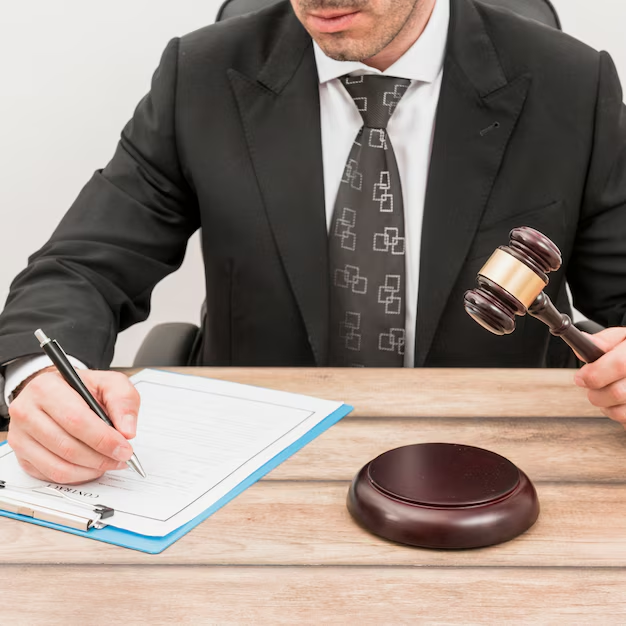Imagine the phone ringing nonstop, day and night, with aggressive debt collectors demanding payment. For many struggling with overwhelming debt, this scenario is all too familiar.
For individuals facing relentless collection efforts, bankruptcy can offer an immediate and powerful solution. The Law Office of Joel Gonzalez, a bankruptcy attorney in Corpus Christi, helps clients put an end to debt collection harassment and regain financial stability.
Through legal protections like the automatic stay, filing for bankruptcy relief can stop debt collectors from contacting individuals, providing much-needed peace of mind.
This article will explain how filing for bankruptcy stops aggressive debt collection, what the automatic stay means for individuals, and how different types of debt are impacted. It will also provide insights into dealing with debt collection lawsuits and the role of a debt collection relief attorney.
How Filing for Bankruptcy Immediately Stops Debt Collectors
One of the most immediate and effective protections bankruptcy offers is the automatic stay. This provision, which takes effect the moment a bankruptcy case is filed, legally prohibits debt collectors from taking any action to collect debts. That means:
- Debt collectorsmust stop making phone calls.
- Collection letters and emails must cease.
- Lawsuits and other legal actions are put on hold.
- Foreclosure proceedings must stop.
- Repossession efforts are halted.
Check out these legal insights into repossession and foreclosure. Please link to CB4.
The automatic stay provides relief from aggressive debt collection harassment, allowing individuals to focus on resolving their financial situation without constant pressure from creditors. However, the type of debt involved and the stage of collection efforts may affect how bankruptcy impacts specific cases.
What Happens to Debt Collection Lawsuits in Corpus Christi?
For individuals facing a debt collection lawsuit in Corpus Christi, bankruptcy can be a critical tool to stop legal actions from proceeding. Once bankruptcy is filed, any lawsuit related to debt collection is immediately frozen, meaning:
- No further court proceedings can take place.
- Creditors cannot obtain judgments against the debtor.
- Any existing wage garnishments (if applicable) are stopped.
- Collection agencies cannot proceed with liens or levies.
This legal protection allows individuals time to work through their bankruptcy case and determine the best course of action for their debts.
Types of Debt That Bankruptcy Can Help With

Not all debts are treated the same way in bankruptcy. Here is how different types of debt are impacted:
1. Medical Debt from a Collection Agency
Medical debt is one of the most common reasons people consider bankruptcy. Unlike credit card debt, medical bills often arise from unexpected health issues rather than financial mismanagement. If you’ve fallen behind on payments, hospitals and healthcare providers may sell your debt to a collection agency, leading to persistent calls, negative credit reporting, and legal action.
Filing for Chapter 7 bankruptcy can completely discharge medical debt, giving you a fresh start without the burden of aggressive collection efforts. If you opt for Chapter 13 bankruptcy, your medical bills will be reorganized into a manageable repayment plan over three to five years, potentially reducing the total amount owed. Either way, filing for bankruptcy immediately stops collection efforts through an automatic stay, preventing lawsuits and wage garnishments.
2. Credit Card Debt
Credit card companies often have strict repayment terms, high interest rates, and aggressive collection practices. If you’ve missed multiple payments, creditors may increase interest rates, impose late fees, and even file lawsuits to recover the debt.
Want to learn more about the impact of rising interest rates on debt relief strategies? Check out our blog on it. Please link to CB1.
Bankruptcy provides a solution:
- Chapter 7 Bankruptcy: In most cases, credit card debt is completely discharged in Chapter 7, meaning you’re no longer responsible for repaying the outstanding balance.
- Chapter 13 Bankruptcy: If you file for Chapter 13, your debt is reorganized into a repayment plan, often reducing the total amount you owe and eliminating high interest charges.
Once bankruptcy is filed, the automatic stay stops credit card companies from contacting you, filing lawsuits, or pursuing wage garnishments. However, be aware that if your credit card debt resulted from recent luxury purchases or cash advances before filing, those transactions might be considered non-dischargeable and still need to be repaid.
Here is how you can navigate debt collection lawsuits. Please link to CB5.
3. Personal Loans and Unsecured Debts

Unsecured debts, including personal loans, payday loans, and installment loans, are typically dischargeable in bankruptcy. Lenders who issued these loans do not have collateral (such as a car or home) to recover their money, making them similar to credit card debt in bankruptcy proceedings.
- Chapter 7 can eliminate personal loans entirely, preventing lenders from suing or garnishing wages.
- Chapter 13 allows for a structured repayment plan, sometimes reducing the total amount owed and eliminating interest.
Payday loan companies often use aggressive tactics, including continuous withdrawals from your bank account. Filing for bankruptcy stops these actions immediately, allowing you to regain financial control. However, if you took out a loan too close to your bankruptcy filing date, the court may investigate whether it was obtained in bad faith, potentially making it ineligible for discharge.
4. Utility Bills and Other Outstanding Balances
If you’ve fallen behind on utility payments, the provider may shut off your electricity, gas, or water service and send the unpaid bills to a collection agency. This not only damages your credit but can also make it difficult to reinstate service without paying off the past-due balance.
When you file for bankruptcy:
- Chapter 7 can discharge overdue utility bills, stopping collection
- Chapter 13 allows you to catch up on past-due balances through a structured repayment plan while maintaining essential services.
Importantly, the automatic stay in bankruptcy prevents utility companies from immediately disconnecting your service due to unpaid balances. However, they may require a security deposit to continue providing service after bankruptcy is filed.
What Happens When Debt Collectors Violate the Automatic Stay?
When you file for bankruptcy, an automatic stay goes into effect immediately, prohibiting creditors from pursuing collection efforts against you. This means they cannot call, send letters, file lawsuits, garnish wages, or repossess property. However, some debt collectors may ignore or deliberately violate this legal protection.
If a creditor violates the automatic stay, you have legal options to hold them accountable, which may result in the following consequences:
1. Monetary Damages Awarded to the Debtor
Debtors who experience harassment or illegal collection efforts may be entitled to compensation. This can include:
- Actual damages – Compensation for financial losses caused by the creditor’s actions, such as lost wages due to stress-related health issues.
- Emotional distress damages – If the creditor’s actions cause severe emotional distress, additional compensation may be awarded.
- Punitive damages – In extreme cases, courts may order the creditor to pay punitive damages to punish willful violations of the law.
2. Legal Penalties Against the Creditor

The court may impose fines or sanctions against the creditor for failing to comply with bankruptcy laws. This serves as a deterrent to prevent similar violations from happening to other debtors.
3. Contempt of Court Charges
If a creditor knowingly violates the automatic stay despite being informed of the bankruptcy filing, the court may hold them in contempt. This can result in additional penalties, including fines or even jail time in severe cases.
If you are experiencing creditor harassment after filing for bankruptcy, it is crucial to work with an experienced bankruptcy attorney. A lawyer can help document the violations, file a motion in court, and pursue damages against the offending creditor.
Steps to Take Before Filing for Bankruptcy
If you are overwhelmed by debt and facing constant collection calls, bankruptcy may be a viable solution. However, before filing, it is essential to take the following steps to ensure the best possible outcome:
1. Document Collection Calls and Harassment
Keeping a record of debt collection attempts can be useful if a creditor violates consumer protection laws or the automatic stay after filing for bankruptcy. Be sure to:
- Record the dates and times of calls.
- Note the name of the debt collector and the company they represent.
- Save any written communication, such as letters or emails.
- If possible, record phone calls (Texas is a one-party consent state, but always check legal requirements before recording).
2. Consult a Debt Collection Relief Attorney in Texas
An experienced attorney can assess your financial situation and help you determine whether bankruptcy is the best option. In some cases, debt settlement or creditor negotiations may be preferable. A lawyer can also help protect you from unlawful debt collection practices under the Fair Debt Collection Practices Act (FDCPA) and Texas Debt Collection Act.
3. Assess Your Financial Situation
Before filing for bankruptcy, take a close look at your finances, including:
- Total outstanding debt
- Monthly income and expenses
- Assets and liabilities
- Creditors’ claims and potential exemptions
A detailed financial assessment will help determine whether bankruptcy is necessary or if other debt relief options, such as debt consolidation or negotiation, are available.
Discover some useful liability management exercises in debt restructuring. Please link to CB3.
4. Consider the Type of Bankruptcy

Most individuals file either Chapter 7 or Chapter 13 bankruptcy, depending on their financial circumstances:
- Chapter 7 Bankruptcy: Ideal for those with little to no disposable income, Chapter 7 allows for the discharge of most unsecured debts (such as credit cards and medical bills) in as little as 3-6 months. However, some assets may be liquidated to pay creditors.
- Chapter 13 Bankruptcy: Best for individuals with a steady income who want to keep their assets. Chapter 13 sets up a structured repayment plan lasting 3-5 years, allowing debtors to catch up on mortgage or car payments while discharging certain debts.
5. File for Bankruptcy Relief in Texas
Once you decide on the best bankruptcy option, filing a petition with the bankruptcy court will trigger the automatic stay, immediately stopping creditor harassment, wage garnishment, and collection lawsuits. This legal protection gives you the breathing room needed to reorganize your finances and work toward a fresh start.
If you are considering bankruptcy in Texas, consulting with a qualified bankruptcy attorney can help ensure a smooth process while protecting your rights.
When Is the Right Time to File for Bankruptcy?
Deciding when to file for bankruptcy depends on individual circumstances. It may be time to consider bankruptcy if:
- Debt collectorsare calling multiple times per day.
- Lawsuits are being filed to collect unpaid debts.
- Medical debt from a collection agencyis unmanageable.
- Credit card balances are overwhelming with no ability to pay.
- Collection harassment is causing significant stress and anxiety.
A bankruptcy attorney can provide personalized guidance on the best time to file based on specific financial conditions.
Ready to Put an End to Debt Collection Harassment? Here’s What to Do Next
Dealing with aggressive debt collection calls can be exhausting and stressful, but there is a way out. Filing for bankruptcy can stop debt collectors, halt lawsuits, and eliminate many types of debt, giving individuals the chance to rebuild their financial future.
For those struggling with overwhelming debt in Texas, working with an experienced bankruptcy lawyer can make all the difference. The Law Office of Joel Gonzalez provides knowledgeable legal assistance, helping clients file for bankruptcy relief and put an end to debt collection harassment.
If you are tired of relentless collection calls and legal threats, take the first step toward financial relief. Contact the Law Office of Joel Gonzalez by calling (361) 654-DEBT to schedule a consultation and find out how bankruptcy can help stop debt collectors for good.








